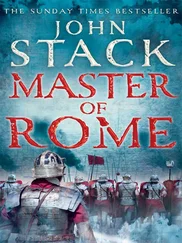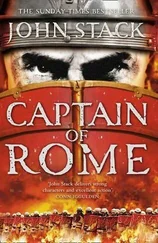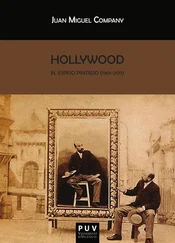Scipio sat straighter as his mind pictured the hated face of Duilius.
‘If you cooperate I will confine you to a cabin rather than the hold you have just left,’ Gisco added.
Scipio could not hide his reaction to the bribe and the opportunity to reach beyond his captivity to have his revenge on Duilius. Gisco noticed the change and smiled inwardly. This was going to be easier than he had anticipated.
‘Now,’ Gisco said, ‘tell me all you know of Gaius Duilius.’
The junior consul looked up from the obviously hurried yet comprehensible sketches laid out before him. The two men at the other side of the table looked confident, as if the idea was a proven strategy, rather than a concept based on an idea formed only an hour before.
‘This design is feasible?’ Duilius asked the older man.
‘Yes, Consul,’ Lentulus replied.
Duilius looked back down at the drawings once more. On paper the design looked practical, the very solution he had sought over the preceding weeks.
‘When can we test it?’ the consul asked.
‘We can rig the Aquila with the new system and be ready to test it within forty-eight hours,’ Atticus replied.
Duilius nodded. He deliberately overcame the infectious conviction of the two men and looked at the idea rationally. To second Lentulus to the Aquila and take him out of the building programme would delay the launch of the final thirty galleys but, if the idea were feasible, it would go a long way towards levelling the odds between them and the Punici. He glanced surreptitiously at Atticus, the captain’s gaze firmly on the drawings on the table. It seemed the outsider had found what everyone had been looking for but none could find.
‘Make it so,’ he replied simply.
The two men stood to leave, the younger man saluting with a clenched fist to his chest. Duilius nodded his dismissal, his expression hiding the eagerness he felt to see the simple line drawings before him turned into reality.
‘He is not of noble birth?’ Gisco asked, trying to find a trace of guile in the Roman’s words. He could find none. The man before him clearly hated Gaius Duilius. Of that there was no doubt, although Gisco could not fathom a reason.
‘No, he is not,’ Scipio spat. ‘He is low-born, the son of a middle-class farmer.’
The monarchy in Carthage had been abolished over fifty years before, but Gisco, like all those in positions of power in both the military and government, could trace their lineage to at least one of the ancient monarchs. The idea that a non-noble could rise to a position of power was foreign to him, and he contemptuously considered Rome’s acceptance of such leaders as a further sign of their fallibility.
‘So how did he rise to such a position?’ Gisco asked.
‘Money,’ Scipio said disdainfully, as if the very word was vulgar, his mind automatically ignoring the fact that it was the riches of his own ancestors that had ensured their place in the first Senate.
‘Has he military experience?’
‘He has never known combat and has no military training.’
Again Gisco found the answers hard to believe and he forced himself to think about the Roman’s words objectively, to suppress the rising confidence he felt at the failings of his enemy.
‘But to rise to such a position he must be resourceful?’ Gisco asked, almost to himself.
‘Yes, he is resourceful, but only in matters of secrecy and deceit.’
Gisco nodded. He felt nothing but disdain for the man sitting opposite him. The Roman was consumed with hate. It was an emotion Gisco understood well, but Scipio was readily betraying his own city in his pursuit of vengeance against a fellow Roman he considered his enemy. In his quest to destroy this man Duilius, Scipio was willing to forfeit a whole fleet of his own countrymen.
‘You have been most helpful,’ Gisco remarked.
Scipio smiled in pathetic gratitude.
‘I would ask you, Admiral,’ Scipio said, his voice filled with a new hope, ‘for the opportunity to bathe and put on new clothes before being escorted to my cabin.’
Gisco smiled.
‘Guards!’ the admiral shouted.
The door was immediately opened and three soldiers stepped into the room.
‘Return this filth to the hold,’ Gisco ordered.
Scipio’s stature seemed to collapse at the command. He began to raise his hands to his face in despair when his arms were grabbed from behind and he was pulled to his feet and dragged from the cabin.
Gisco watched him leave. If Duilius was junior in rank and ability to this broken man, then the Carthaginians were poised to sweep the sea clear of Rome for ever.
‘Release!’
For a heartbeat the corvus remained motionless as the holding rope went slack. It began to fall, slowly at first, until its own weight caused it to pick up momentum and it slammed down with a shattering crash onto the foredeck of the galley across from the Aquila.
‘Good,’ Lentulus said, as if to himself, one of his apprentices automatically nodding his agreement by his side.
‘But too slow,’ Atticus added. ‘It’s got to start falling the instant it’s released.’
‘I agree,’ Lentulus replied thoughtfully. ‘I will make some modifications.’
Atticus watched the sailors pull on the rope to raise his invention once more to its position. He had named the new weapon the corvus , for the raven was a harbinger of death and Atticus fully intended to make sure the device lived up to its name.
The corvus was a combination of a crane and a gangplank, thirty-six feet long and four wide, a massive ramp with its bottom end hinged to a vertical mast installed in the centre of the foredeck. The mast rose forty feet above the deck, allowing for the ramp to be raised to a vertical position and the hinge pivoted through one hundred and eighty degrees, making it possible to deploy the corvus on both the starboard and port sides of the galley. In one fell swoop the ramp could be lowered and legionaries rushed across to board an enemy ship. The ramp was big enough to allow the legionaries to carry their full battle kit, including the four-foot scutum shield, and in sufficient numbers to ensure a standard battle formation line could be deployed on the enemy’s deck within seconds.
Atticus left the craftsmen and walked over to the side rail where Septimus had been watching the latest test, Atticus having asked him on board for his expertise on legionaries’ tactics.
‘You know,’ Atticus smiled, ‘if this works, the marines will be out of a job.’
He turned to Septimus but the centurion was not laughing; indeed his expression was troubled.
‘I came to the Aquila the night before last,’ he said unexpectedly, giving voice to the question that had been on his mind since then. ‘You weren’t on board.’
‘No,’ Atticus said, his mind racing to cover his absence from the Aquila and his trip to Rome. ‘I was with Duilius in his quarters and didn’t get back until after midnight.’
Septimus nodded, his expression giving nothing away, but inside his anger was building. Atticus was lying to him. Septimus had spent the night on the Aquila and he knew that Atticus had never returned. He was about to challenge Atticus on the lie when they were interrupted.
‘We’re ready to try again,’ Lentulus said behind them.
‘To speed the fall of the ramp, the corvus will no longer rise to the vertical. The angle will put more stress on the mast, but I am confident it will still hold.’
Atticus nodded at the solution and looked over to the sailors who were once more holding the release rope taut.
‘Ready?’
The sailors nodded.
‘Release!’
Читать дальше
Конец ознакомительного отрывка
Купить книгу











